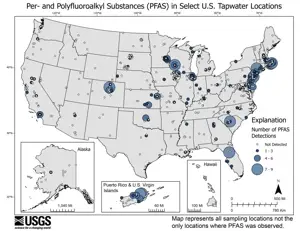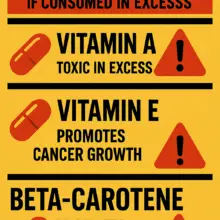Is water still the ‘drink of life’?
The Hidden Dangers in Tap Water — What Health-Conscious Consumers Need to Knowhttps://clearlyfiltered.com/articles/states-with-the-worst-tap-water-2025
Tap water, a staple in most homes, can harbor a wide range of contaminants, some of which pose significant health risks. Understanding these dangers and knowing how to effectively mitigate them is essential for anyone who prioritizes their well-being.

Major Tap Water Contaminants & Health Risks
Despite EPA regulation, tap water is still susceptible to the following contaminants:cdc+2
- PFAS (“Forever Chemicals”): Linked to cancer, hormone disruption, and immune system effects.
- Disinfection Byproducts (Trihalomethanes, Haloacetic Acids): Byproducts of chlorine-based water treatment, associated with increased cancer risk and reproductive issues.thenewlede+2
- Hexavalent Chromium: A known carcinogen found in water supplies serving millions.heliosfilter+1
- Heavy Metals (Lead, Arsenic, Copper, Radium): Lead damages cognition in children; arsenic and radium are carcinogenic.
- Microplastics & Nitrate: May disrupt organ function and increase cancer risk.environment.yale+1
Infants, children, pregnant women, and immunocompromised individuals are especially vulnerable.cdc
Can Filtering Solve the Problem?
Water Pitchers with Advanced Filters
- Clearly Filtered Pitcher: Removes >360 contaminants, including PFAS, trihalomethanes, and haloacetic acids. Independently tested and top-rated for health-related contaminant reduction.waterfilterguru+2
- ZeroWater Pitcher: Certified to reduce PFAS, uranium, fluoride, copper, but less effective at disinfection byproducts.waterfilterguru
Not all pitchers are equally capable—typical brands like PUR or Brita do not reliably remove PFAS or disinfection byproducts. Choose verified models.mytapscore
Reverse Osmosis (RO) Systems
RO systems are highly effective at removing virtually all contaminants, including heavy metals, PFAS, disinfection byproducts, and hexavalent chromium. However, they also remove beneficial minerals like calcium and magnesium by 90–97%.waterfilterguru
Top 3 RO Systems (2025):
| Rank | System | Key Features | Rating justwater |
|---|---|---|---|
| 1 | AquaTru Carafe | NSF/ANSI certified, removes 83+ contaminants, top contaminant reduction, remineralization option | 9.54/10 |
| 2 | Waterdrop G3P600 | High capacity, permanent installation, good for large households | 9.2/10 |
| 3 | SimPure Y7P-BW | Convenient for rentals, countertop, effective filtration | 9.0/10 |
RO is recommended for comprehensive removal, but may require remineralization filters to restore beneficial minerals.growersnetwork+2
Distilled Water Systems
Distillers remove virtually everything—both harmful and beneficial minerals—by boiling and recondensing water.
Top 3 Water Distillers (2025):
| Rank | Distiller | Key Features | Rating justwater |
|---|---|---|---|
| 1 | Megahome MH943SBS | Stainless steel, glass carafe, UL safety certification | 4.8/5 |
| 2 | Vevor 4L Stainless Steel | Affordable, efficient, good build quality | 4.4/5 |
| 3 | CO-Z Stainless Steel Distiller | Reliable, easy cleaning, high distillation speed | 4.3/5 |
Distilled water is safe to drink for adults but may lack essential minerals such as calcium and magnesium, which some consumers prefer to consume through water.bobvila+1
Should We Remove All Minerals from Tap Water?
- Pros: Eliminates potentially toxic inorganic minerals (e.g., lead, arsenic, mercury), reduces risk of kidney stones and other calcification issues.apecwater
- Cons: Removes some beneficial minerals that can contribute to dietary intake—magnesium and calcium support cardiovascular and bone health.justwater+1
- Most tap water minerals are inorganic and poorly absorbed; most dietary minerals come from food, not water.apecwater
Are We Really Assimilating Minerals from Tap Water?
- Tap water can provide significant portions of daily magnesium, calcium, and sodium—especially in mineral-rich regions.pmc.ncbi.nlm.nih+1
- However, absorption of inorganic forms is lower than from food, and excess intake of harmful minerals can outweigh benefits.
Pros & Cons of Consuming Distilled Water
| Pros | Cons |
|---|---|
| Nearly contaminant-free | Lacks beneficial minerals |
| Safe for short-term consumption | May not be ideal for prolonged use |
| Recommended for medical use | Can taste “flat” or bland |
| No toxic minerals | Not recommended for infants or those with electrolyte needspmc.ncbi.nlm.nih+1 |
Distilled water is considered safe for healthy adults if overall mineral intake (from food) is adequate. For those needing minerals or with intense hydration needs, RO systems with remineralization filters or mineral waters may be preferable.justwater+2
The Bottom Line for Health-Conscious Consumers
- Advanced filter pitchers (e.g., Clearly Filtered) are practical, affordable, and handle most contaminants, but for highest security against PFAS and disinfection byproducts, RO or distillation is best.waterfilterguru+3
- If you use RO or distillation, consider remineralizing your water or making sure your diet supplies adequate minerals.
- Always check your local water report and choose systems tested for the contaminants most prevalent in your region.




